 Abu Dhabi and deputy supreme commander of the United Arab Emirates armed forces, talked about the uprisings sweeping the Middle East at a massive international arms expo in Abu Dhabi on Tuesday. Kevin Baron/Stars and Stripes
Abu Dhabi and deputy supreme commander of the United Arab Emirates armed forces, talked about the uprisings sweeping the Middle East at a massive international arms expo in Abu Dhabi on Tuesday. Kevin Baron/Stars and Stripes________________________________________
Defense News
Stars and Stripes
Mullen finds Middle East leaders anxious about upheaval in the region
By Kevin Baron
Stars and Stripes
Published: February 22, 2011
ABU DHABI, United Arab Emirates — Adm. Mike Mullen said Persian Gulf leaders have told him they are anxious about uprisings elsewhere in the Middle East and are hoping for peaceful resolution across the region.
“We all agree that this is a time of enormous change, and it needs to be resolved peacefully, without violence, without loss of life, and leaders have to step forward in that regard,” Mullen said, after meeting with Sheik Mohammed bin Zayed, crown prince of Abu Dhabi and deputy supreme commander of the UAE armed forces.
Keeping up with the region’s rapid developments, Mullen condemned the Libyan military’s violent response against its citizens.
“That kind of loss of life, that kind of military firing on its own people, killing its own people, is absolutely unacceptable,” said Mullen, chairman of the Joint Chiefs of Staff.
Mullen and Zayed met for more than an hour in a corner of a crowded food court in an exhibition hall at the Middle East’s largest arms expo.
The glitzy five-day International Defense Exposition and Conference is hosting more than 1,000 companies, 110 from the U.S., showcasing everything from drones to armored vehicles and the latest rifles.
As Arabic television remains rapt with wall-to-wall coverage of collapsing regimes, Mullen’s tour of Persian Gulf states has quickly become an exercise in delicate diplomacy. The top U.S. military officer is meeting with autocratic rulers, royal families and military chiefs the Pentagon has supported for decades. The reason: To listen to their perspectives and offer reassurances to longtime friends, he said.
Mullen’s first stop was to see Saudi military leaders in Riyadh, where state television one day earlier had stopped airing Al-Jazeera, the Arabic-language cable news network widely credited with keeping the revolutionary movement alive through live, unflinching broadcasts from the streets of Cairo, Tripoli and Manama.
Mullen then visited Qatar, the home of Al-Jazeera, where he met with Maj. Gen. Hama al-Attiyah, the chief of staff; and his heir apparent, Sheikh Tamim Bin Hamad Al Thani, among others.
But a short flight later Mullen was walking the convention floor at IDEX, where U.S. weapons manufacturers will log billions of dollars in orders this week from friendly militaries across the region.
Mullen also appeared unaware that across the peninsula an Iranian naval frigate and a supply ship had passed through the Suez Canal on Tuesday – the first Iranian ships to do so in roughly 30 years.
“That’s something that the government of Egypt controls, the Suez Canal,” he said, flatly. “Actually, this is news to me.” baronk@stripes.osd.mil
_________________________________
See also
New York Times
Protests in Bahrain Become Test of Wills
By MICHAEL SLACKMAN and NADIM AUDI
Published: February 22, 2011
Reuters
INTERVIEW-Mideast unrest shows need for alternative fuels-Mabus
Wed Feb 23, 2011 3:39am GMT
U.S. Reviews Arms Sales Amid Turmoil(Wall Street Journal)
By Adam Entous
The Obama administration has launched a review of military assistance and prospective weapons sales to countries caught up in a wave of popular revolts, underlining growing uncertainty about how the turmoil sweeping the Middle East will alter fundamentals of U.S. policy in the region.

![[URGENT PLEA: In Update] EMERGENCY in GANGJEONG Since AUG. 24, 2011](http://2.bp.blogspot.com/-3iz8k-USXVY/TlmRYhhIYtI/AAAAAAAAL2c/9dbF85ZIkIs/s227/jejusit.jpg)
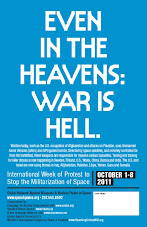
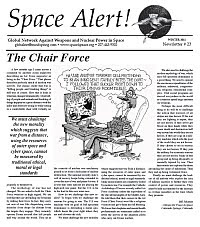

![[Solidarity from Japan for the Jeju] 253 individuals and 16 groups/organizations](http://2.bp.blogspot.com/_gnM5QlRx-4c/TR_YeNVE1yI/AAAAAAAAHWQ/ARyf6oQN0S0/S227/jeju_12_10j.jpg)
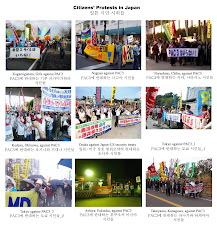
![[Translation] Korean organizations' statement: Immediately cancel the joint ROK-US drill Nov 26](http://2.bp.blogspot.com/_gnM5QlRx-4c/TPOE8VKXHFI/AAAAAAAAGlM/8lryt-8sFjc/S227/1.jpg)
![HOT! [Hankyoreh Hani TV] Beneath the Surface: the investigation into the sinking of the Cheonan](http://4.bp.blogspot.com/_gnM5QlRx-4c/TOI83qht8aI/AAAAAAAAGXU/22SW6Q5ntV8/S227/HaniTV%2BCheonan.gif)

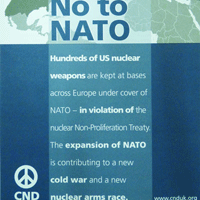

![[Translation]Statement against illegal inspection and unjust lay-off by the Kunsan USAFK!(Nov_2010)](http://4.bp.blogspot.com/_gnM5QlRx-4c/TOPLsVkZMqI/AAAAAAAAGZs/3YnnckIyAaY/S227/gunsan%2Bprotest.gif)
![[Translation] Korean organizations' statement against dispatching special force to the UAE on Nov.](http://4.bp.blogspot.com/_gnM5QlRx-4c/TOP95zHXlCI/AAAAAAAAGak/E0Ug1XtUFfM/S227/antiwarpeace.jpg)
![[Translation] Stop, Joining MD!: South Korean activists' statement and writing on Oct. 25, 2010](http://3.bp.blogspot.com/_gnM5QlRx-4c/TOP7Es4_2sI/AAAAAAAAGac/eWVMPD-U4p0/S227/StopMD.jpg)
![[In Update] People First, NO G-20 (Nov. 6 to 12, Korea)](http://2.bp.blogspot.com/_gnM5QlRx-4c/TJd53XBzHlI/AAAAAAAAFQo/ldO9JPE3eqo/S227/left21_G20.jpg)
![[International Petition] Stop US helipad plan in Okinawa to save great nature](http://4.bp.blogspot.com/_gnM5QlRx-4c/TKC2AHRNzBI/AAAAAAAAFUo/yGWXODTw_uM/S227/yanbaru_w.jpg)

![[Global Network] against the first launch of Quasi-Zenith Satellite, Japan, on Sept. 11, 2010](http://4.bp.blogspot.com/_gnM5QlRx-4c/TIowa1boy4I/AAAAAAAAFDI/82rAi98uq-c/S227/Qzss-45-0_09.jpg)

![[In update] Some collections on the Koreans’ protests against the sanction & war on Iran](http://4.bp.blogspot.com/_gnM5QlRx-4c/TJMvke6t8zI/AAAAAAAAFO4/tamQ8LUnOOA/S227/No+Sanction+on+Iran.jpg)
![[Three International Petitions] to End the Korean war and peace treaty(or peace resolution)](http://1.bp.blogspot.com/_gnM5QlRx-4c/THef7bzWxYI/AAAAAAAAE44/wwdzSDfYhdw/S227/border.jpg)
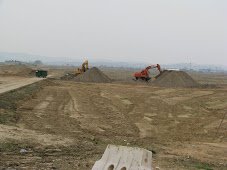


![[Collection of Documents] No Base Learning and Solidarity Program_Korea(June 14 to 20, 2010)](http://1.bp.blogspot.com/_gnM5QlRx-4c/TCTvVuN8NeI/AAAAAAAAEek/8vBJVaHdk10/S227/No-Base-banner.jpg)
![Site Fwd:[John Hines] A U.S. Debate coach’s research trip on the Issues of Korea](http://3.bp.blogspot.com/_gnM5QlRx-4c/TINCO36mzzI/AAAAAAAAE_w/Rds12NcBOXM/S227/Jeju-Peace-Tour.jpg)


![[News Update] Struggle Against the Jeju Naval Base since Jan. 18, 2010](http://1.bp.blogspot.com/_gnM5QlRx-4c/S1vvWaP25uI/AAAAAAAACkg/QvpW1tgOlKM/S226/scrum1.jpg)


![[Urgent] Please spread the Letter!: There was no Explosion! There was no Torpedo! (May 26, 2010)](http://4.bp.blogspot.com/_gnM5QlRx-4c/S_9JmsKEU7I/AAAAAAAAEP8/sAWjSPqxzUI/S227/grounded.jpg)
![Text Fwd: [Stephen Gowans]The sinking of the Cheonan: Another Gulf of Tonkin incident](http://1.bp.blogspot.com/_gnM5QlRx-4c/TAL_FtYKQ-I/AAAAAAAAERE/NEEMijiEcRM/S227/lee-myung-bak.jpg)
![[Japan Focus]Politics in Command: The "International" Investigation into the Sinking of the Cheonan](http://1.bp.blogspot.com/_gnM5QlRx-4c/TBMJ2syJzyI/AAAAAAAAEZU/uTYZccU5vyk/S227/wen_jiabao_and_lee_myungbak.png)
![[Japan Focus] Who Sank the SK Warship Cheonan? A New Stage in the US-Korean War and US-China](http://2.bp.blogspot.com/_gnM5QlRx-4c/S_iQ2vE5ZpI/AAAAAAAAEOU/Oo1SPcAe8FE/S227/buoy_map.gif)
![[Updated on 12/13/10] [Translation Project] Overseas Proofs on the Damages by the Military Bases](http://4.bp.blogspot.com/_gnM5QlRx-4c/S-qSj59gPLI/AAAAAAAAEGM/mwjlFtPE-jo/S227/missile.jpg)
![[International Petition] Close the Bases in Okinawa](http://3.bp.blogspot.com/_gnM5QlRx-4c/S8-z3DYNwNI/AAAAAAAADo4/OswTSchK09M/S227/2.jpg)

![[In Update]Blog Collection: No Korean Troops in Afghanistan](http://4.bp.blogspot.com/_gnM5QlRx-4c/SwnlLD9IewI/AAAAAAAAB9E/oUPssnpNidA/S226/No-Troops-to--Afghanistan.jpg)
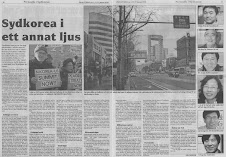

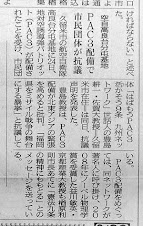

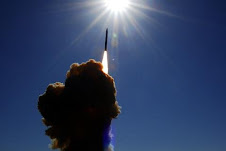



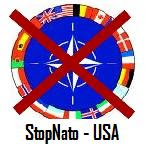


No comments:
Post a Comment